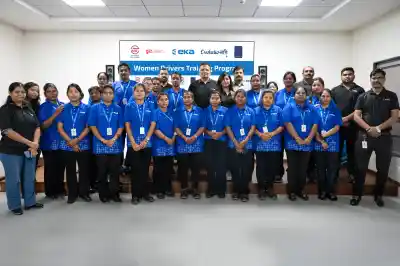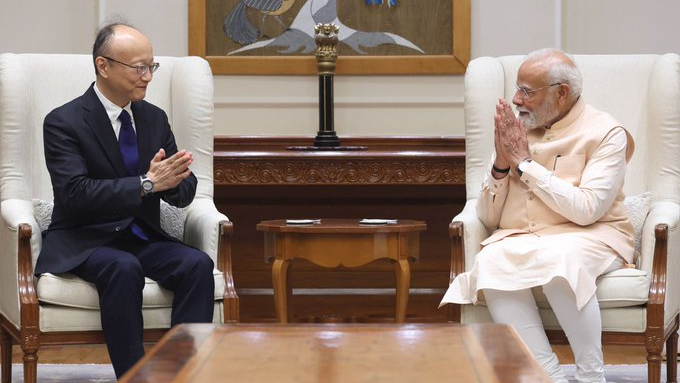

New Delhi, June 1: The Asian Development Bank (ADB) has pledged up to USD 10 billion over the next five years—including third-party capital—to support India’s ambitious urban development agenda. The commitment will fund metro network expansions, new Regional Rapid Transit System (RRTS) corridors, and improvements in urban infrastructure and services.
The announcement followed a meeting between ADB President Masato Kanda and Prime Minister Narendra Modi in the national capital. “Cities are engines of growth,” Kanda said. “ADB will mobilize capital, accelerate delivery, and scale solutions that keep India's urban economy moving and its people thriving on the road to Viksit Bharat @ 2047.”
The five-year plan combines sovereign loans, private sector financing, and third-party capital to support India's urban evolution. It is anchored by the Urban Challenge Fund (UCF)—a flagship initiative aimed at attracting private investment into urban infrastructure projects. ADB is actively supporting the fund with technical and strategic inputs.
In a post on X (formerly Twitter), Prime Minister Modi wrote: “Had a wonderful meeting with Mr. Masato Kanda, in which we shared perspectives on a wide range of issues. India’s rapid transformation over the last decade has empowered countless people, and we are working to add further momentum to this journey!”
To lay the groundwork for the UCF, ADB has completed analytical work in 100 Indian cities focused on growth hubs, creative city redevelopment, and water and sanitation improvements.
As part of its broader support, ADB will also provide USD 3 million in technical assistance to help design financially viable urban projects and to enhance the capabilities of state and local urban bodies. With more than 40% of India’s population projected to live in cities by 2030, the need for sustainable urban solutions is growing rapidly.
ADB’s current urban portfolio in India includes 27 active loans valued at USD 5.15 billion, covering projects in over 110 cities across 22 states. These initiatives span water supply, sanitation, affordable housing, and solid waste management.
In the past decade, ADB has also committed USD 4 billion for urban transport projects, including metro and RRTS systems across eight cities. These include the Delhi-Meerut RRTS, Mumbai Metro, Nagpur Metro, Chennai Metro, and Bengaluru Metro, spanning over 300 kilometers of urban transit.
During his visit, Kanda met key government officials, including Finance Minister Nirmala Sitharaman, to discuss expanding metro networks through transit-oriented development (TOD), strengthening rural prosperity, scaling rooftop solar initiatives, and operationalizing the Urban Challenge Fund.
He also held talks with Housing and Urban Affairs Minister Manohar Lal, focusing on leveraging private capital for urban projects and replicating successful ADB-backed transit models in new corridors.
While visiting the ADB-supported Delhi-Meerut RRTS, Kanda interacted with women who had benefited from training and employment through the project. InGurugram, he met with the renewable energy firm ReNew to explore deeper collaboration in clean energy. He also led a roundtable with CEOs from infrastructure, finance, agriculture, and social sectors, where he highlighted the role of India’s private sector in scaling the country’s growth.
“India’s private sector holds the dynamism and capacity to drive the next phase of the country's transformation,” Kanda emphasized.